A Level Chemistry
Why should I study A Level Chemistry?
![]()
The study of Chemistry at A Level develops a range of skills including a more precise approach to practical activities and enhanced problem-solving techniques that will be useful in future careers.
The enhanced scientific literacy will enable students to engage in real-life issues from a secure knowledge base. As society looks to move to more sustainable technology with reduced environmental impact, it is more important than ever to explore the ways in which Chemistry can be applied to future technology. Meeting the ever-growing energy demands, increasing recycling and reducing polluting waste of an expanding population, the Chemists of tomorrow need to start today!
Studying this subject will enable you to:
- Develop and demonstrate a deep appreciation of the skills, knowledge and understanding of scientific methods and use theories, models and ideas to develop scientific explanations.
- Develop competence and confidence in a variety of practical, mathematical and problem solving skills.
- Use appropriate methodology, including information and communication technology (ICT), to answer scientific questions and solve scientific problems.
- Analyse and interpret data to provide evidence, recognising correlations and causal relationships.
Course Specification
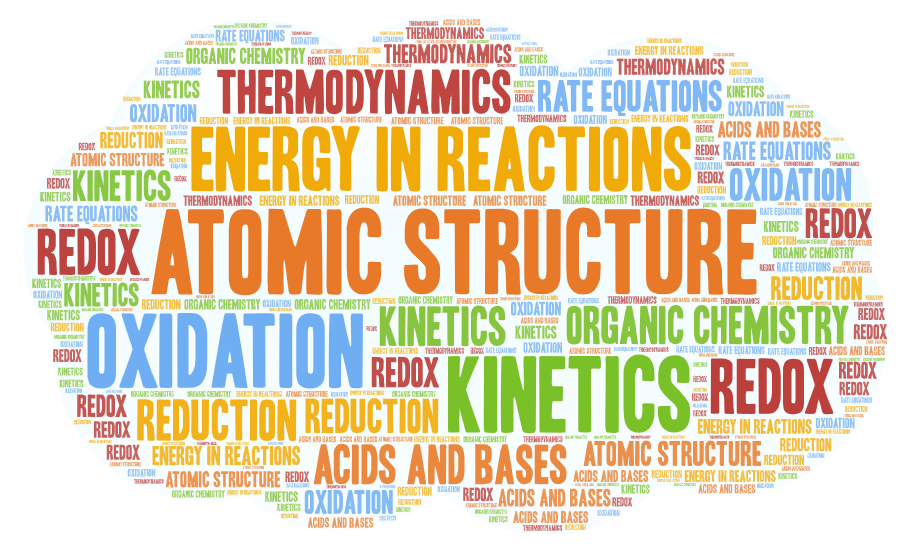
Students will study the following content:
- Atomic structure and bonding
- Energy in reactions
- Kinetics
- Chemical equilibria
- Oxidation, reduction and redox reactions
- Inorganic chemistry and the periodic table
- Organic chemistry
- Organic analysis
- Thermodynamics
- Rate equations
- Equilibrium constants, KP for homogeneous systems
- Electrode potentials and electrochemical cells
- Acids and bases
- Further periodic table
- Reactions of ions in aqueous solution
- Further organic chemistry
- Further analysis
Chemistry is fundamentally an experimental subject and students will be provided with numerous opportunities to use practical experiences to link theory to reality, and equip them with the essential practical skills they need.
At least 15% of the overall assessment will assess knowledge, skills and understanding in relation to practical work.
The course will also require mathematical skills at Level 2 or above. The percentage of the overall assessment of mathematical skills will be 20%.
Year 12
In the first year of study, you will cover the following topics:
Physical chemistry, Atomic structure, Amount of substance, Bonding, Energetics, Kinetics, Chemical Equilibria, Le Chatelier’s principle and KC, Oxidation and reduction, Inorganic Chemistry, Periodicity, Group 2, Group 7, Organic Chemistry, Introduction to organic Chemistry, Alkanes, Halogenoalkanes, Alkenes, Alcohols and Organic Analysis.
Year 13
In the second year of study, you will cover the following topics:
Thermodynamics, Rate equations, Equilibrium constant, KP for homogenous systems, Electrode potentials and electrochemical cells, Acids and bases, Properties of period 3 elements and their oxides, Reactions of ions in aqueous solutions, Optical isomerism, Aldehydes and ketones, Carboxylic acids and derivatives, Aromatic chemistry, Amines, Polymers, Amino acids, proteins and DNA, Organic synthesis, Nuclear magnetic resonance spectroscopy and Chromatography.
Examining Board Information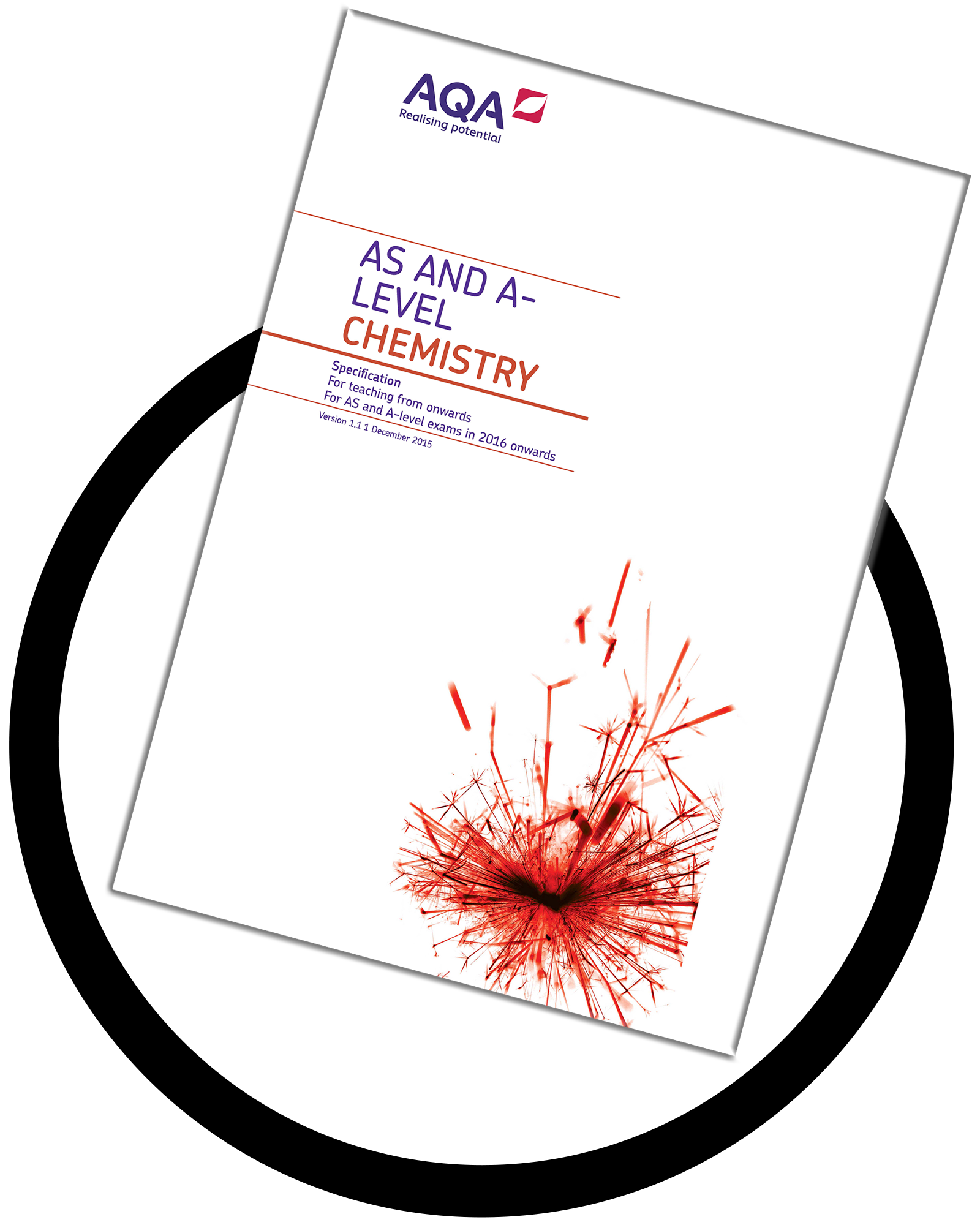
Board: AQA
Course Code: 7405
Click the image on the right to download the full course specification.
Widening Horizons
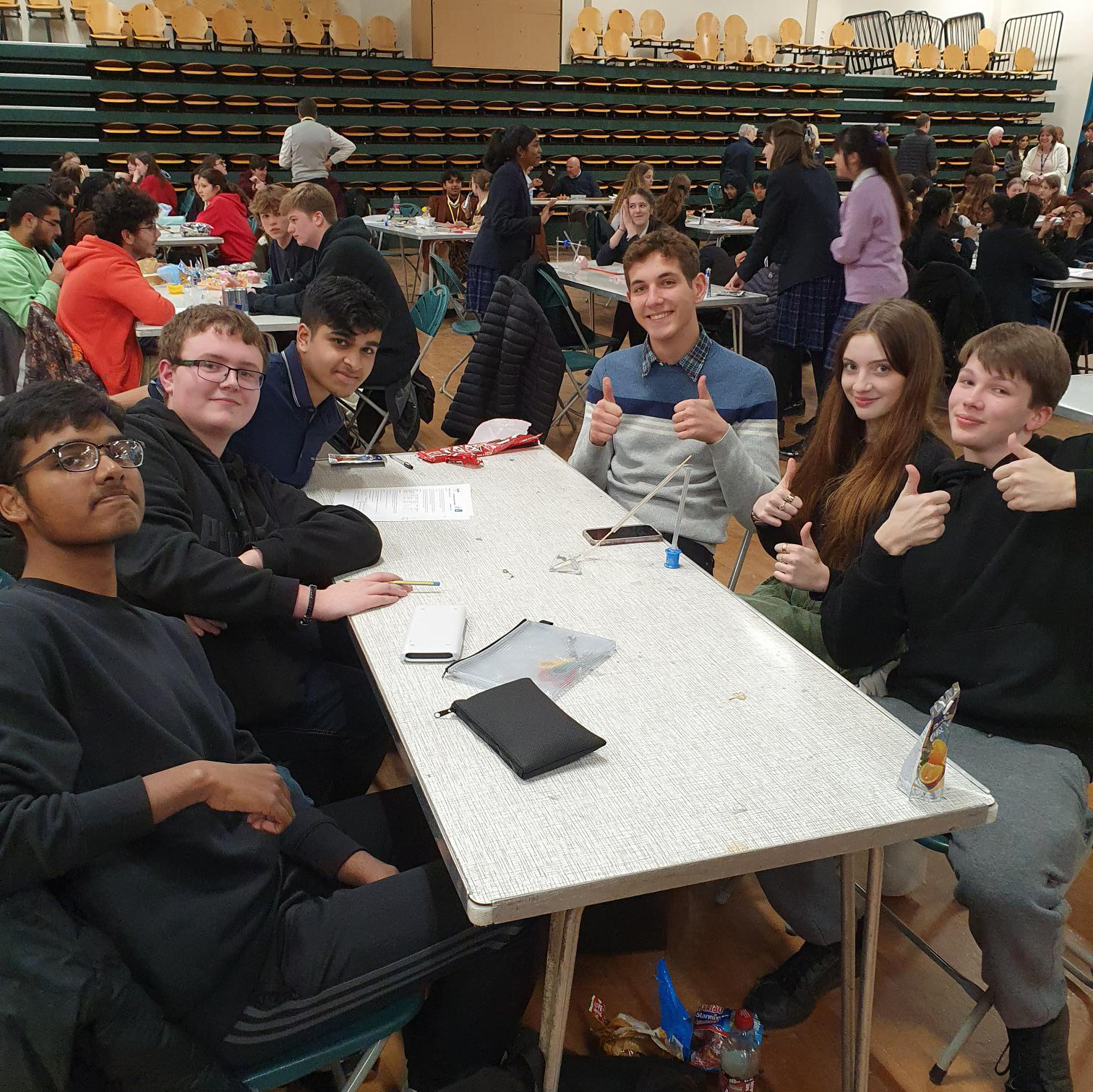
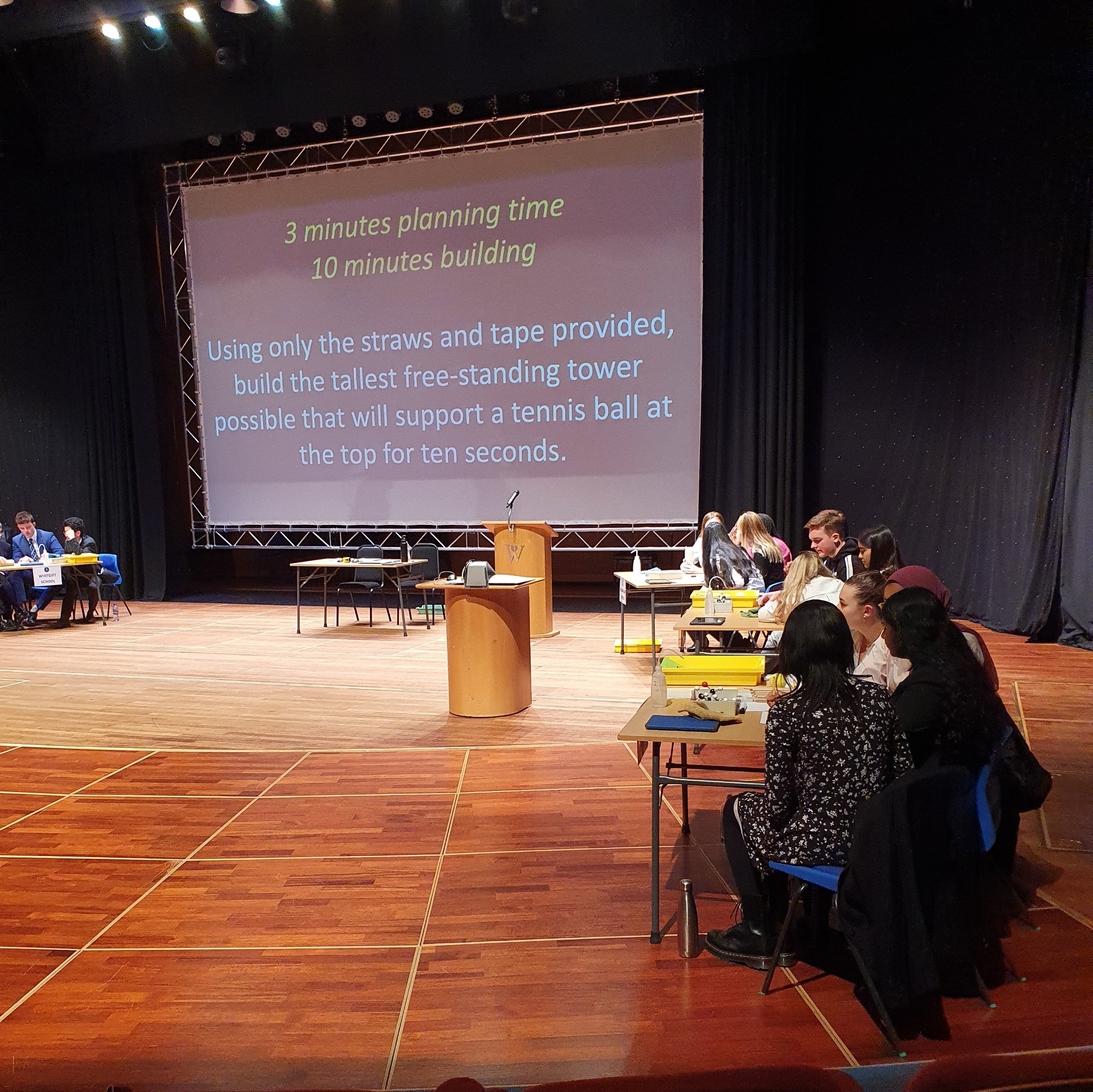
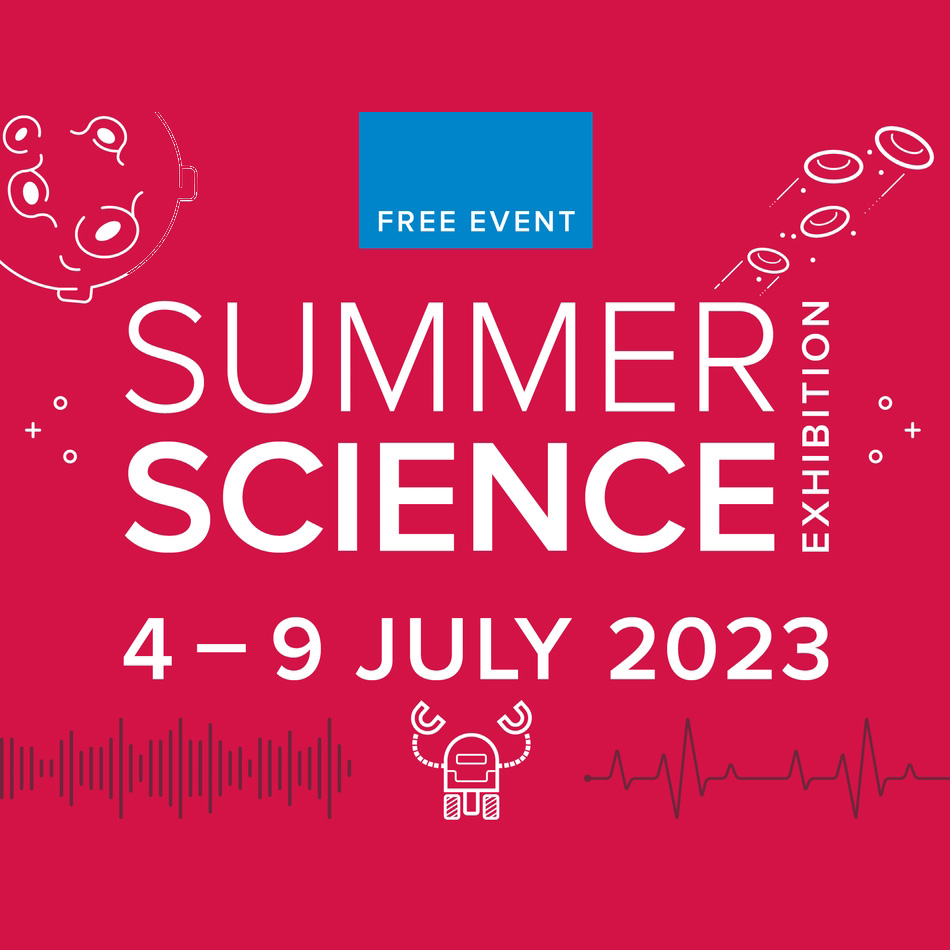
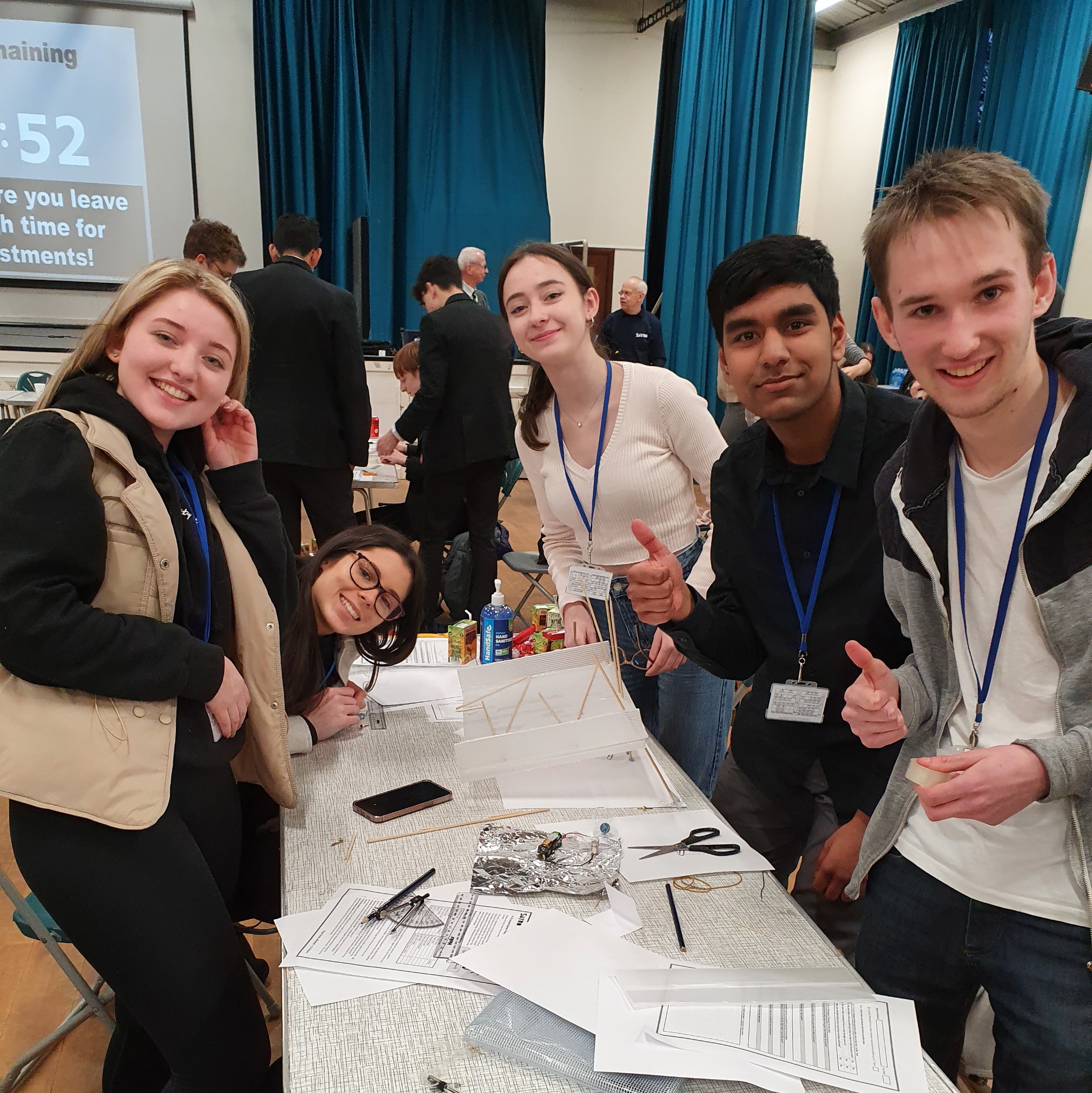
At Warlingham, we aim to widen the horizons of students beyond the class room with a range of extra-curricular activities.
SATRO Problem Solving Challenge
Every year we take part in the SATRO Problem Solving Challenge, where we compete with other Surrey schools in completing a challenge set by the organisers. It consists of four heats with the winners and runners up of the heats being invited to the final. The creative nature of the challenges allows students to show off their imaginative problem solving skills in order to complete a task that meets very specific criteria.
One of our Year 12 Chemists had this to say:
“The SATRO Problem solving challenge is undertaken by a team of science students, including critical thinking, teamwork, and a different perspective on puzzles. When we took part in the challenge, our goal was to build a crane with a few materials with the overall aim to make a more sustainable future by clearing the ocean, which seemed easy at first. It showed us how important it is to break down all problems into steps and to apply logic to resolve issues as they arose. Everyone on the team said it was a fun and worthwhile event. It prepared us for any future careers where teamwork will be predominant because, unlike in the classroom, it is a different atmosphere with a lot more pressure. Communication and time management is key for the challenge, which can be useful for any topic when it comes to group work or exams. This year, all the members who did the challenge would recommend it to others.”
Shaun, Year 12 Student
Cambridge Chemistry Challenge
Students wishing to truly challenge themselves may like to join the Cambridge Chemistry Challenge, where brand new concepts are broached in a series of highly challenging questions in competition with students from all across the country. This application of both chemical knowledge and logic allows for a challenging competition.
RSC Summer Science Exhibition
We plan on organising a trip to the RSC Summer Science Exhibition which offers a free interactive experience for students curious about the latest advances in science and technology. There are plenty of activities and events to discover and the opportunity for students to talk to over 300 scientists exhibiting over six days about their exciting research.
Assessment Format
Paper 1
Written examination (2 hrs) consisting of short and long answer questions. This paper is worth 35% of the overall marks for this qualification.
Paper 2
Written examination (2 hrs) consisting of short and long answer questions. This paper is worth 35% of the overall marks for this qualification.
Paper 3
Written examination (2 hrs) consisting of questions on practical techniques and data analysis, questions testing across the specification and multiple-choice questions. This paper is worth 30% of the overall marks for this qualification.
A separate endorsement of practical skills will be taken alongside the A Level.
Course Entry Requirements
This course requires a Grade 6-6 or above in GCSE Combined Science or Grade 6 or above in GCSE Chemistry.
It is also strongly recommended that you have a Grade 6 or above in GCSE Mathematics.
Employability Skills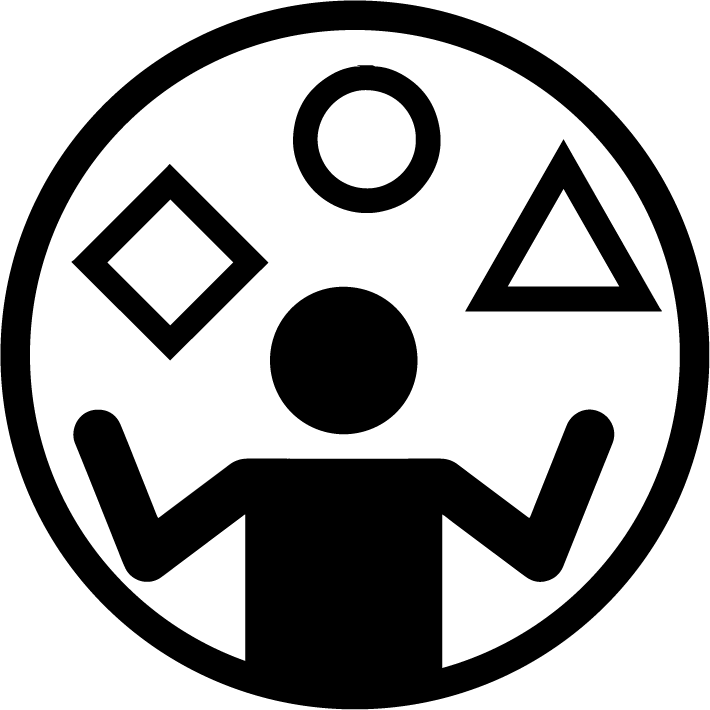
Employability Skills are essential skills, personal qualities and values that will enable you to thrive in any workplace. Along with good technical understanding and subject knowledge, employers often outline a set of skills that they want from an employee.
This course will help you to develop the following employability skills:
- Ability to meet deadlines
- Attention to detail
- Decision making and reasoning
- Good communication skills
- Problem solving
- Scientific practical skills
- Team building skills
- Understand, manipulate and make use of numerical data
Next Steps
This course can support further study at degree level or careers in most STEM (Science, Technology, Engineering and Maths) areas including: Chemistry, Dentistry, Medicine Agriculture, Pharmaceuticals, Environmental Science, Engineering, Toxicology, Space Exploration, Energy, Teaching, Science Writing, Software Development and Research.
10 Possible Careers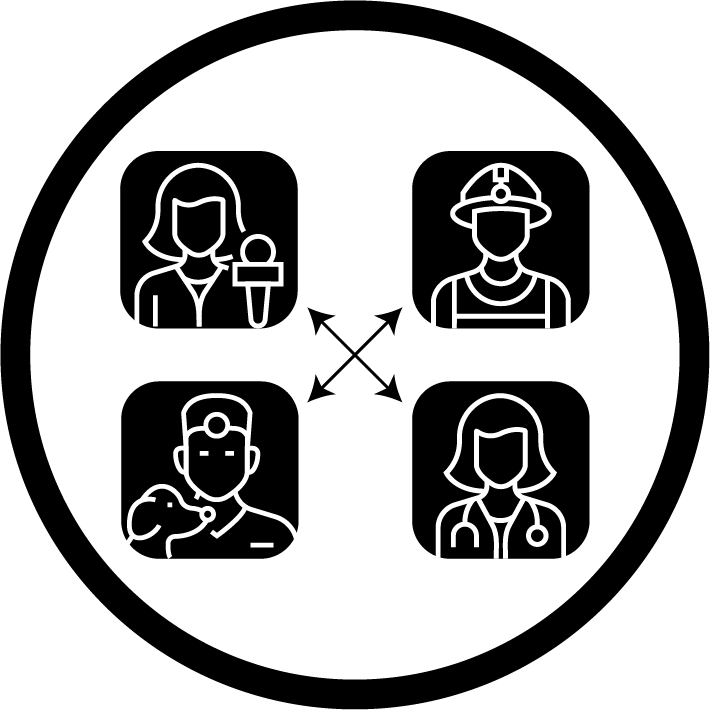
- Biomedical Scientist
- Drug Research and Development
- Engineering
- Environmental Scientist
- Food Scientist
- Forensic Scientist
- Fuel Technologist
- Manufacturing Engineer
- Materials Scientist
- Medicine / Dentistry / Veterinary
Student Profile: Kashvi
 Kashvi's subjects
Kashvi's subjects
A Level Biology
A Level Chemistry
A Level Psychology
Extended Project Qualification (EPQ)
I want to study Medicine at university and become a doctor. Staff have regularly directed me towards suitable opportunities, such as to join a local society for aspiring medics, like myself. As part of the Russell Group I was able to attend a workshop, which included staff from universities such as Imperial College London.








